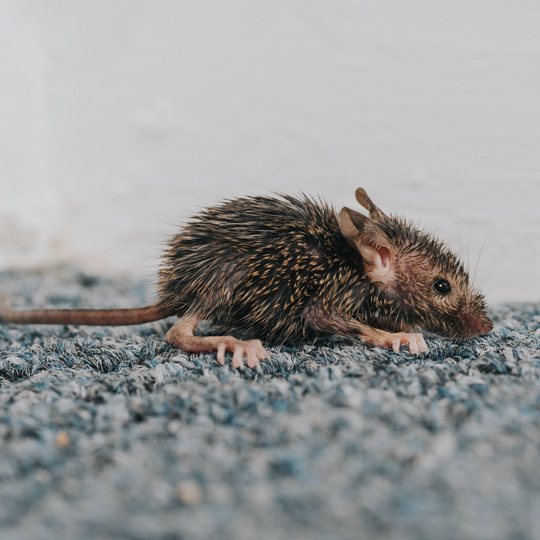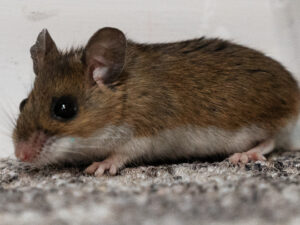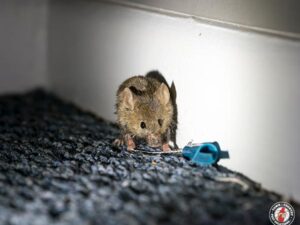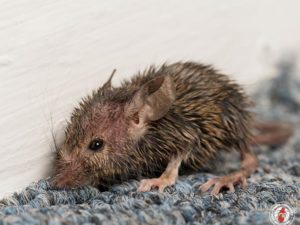
The Mouse Life Cycle
Mice lead short, terrifying lives, but if they find their way indoors they may be able to survive a little longer. In their natural habitat, where food is not readily available and predators abound, a mouse will live for six months on average. However, if mice find their way indoors, where they are safer and more sheltered, they can reach up to two years. Let’s take a look at what the life cycle of the mouse looks like.
Baby mice
Mice start out as very small pups, about the size of a quarter, and they only weigh as much as a sheet of paper. They are blind at birth, and they are sometimes referred to as pinkies, due to their pink coloration and hairless bodies. It’s very unlikely that you will come across baby mice in your home, unless you find a mouse nest.
Young mice
Mice will enter their childhood stage between the first few days and the first three weeks of their lives. At this point, they have opened their ears and eyes, and their fur has grown on their bodies. This is followed by the adolescent stage which lasts from 3 to 8 weeks, and the young mice will exhibit impulsive and novelty seeking behavior during this period.
Adult mice
A mouse is considered an adult when it is about two months old. At this point, the mice are fully capable of reproducing, with female mice being pregnant for up to 21 days, after which they will give birth to six pups on average. This means that over a period of one to two years, a mouse population can explode if they have enough food and no predators around.
Getting rid of mice
Mouse control involves two things: prevention and removal. Preventive measures ensure that mice are not able to enter the home and reproduce inside it in the first place, while removal measures will take care of an active infestation before it gets any bigger. If you have an infestation, you will need both preventive and removal measures to ensure that your home is free of mice and that it will stay free for the foreseeable future. You can implement these measures by yourself with a bit of research, but if an infestation is too big, you will need professional help. If you are in the latter situation, contact us today and we can help you out.












